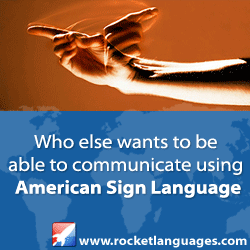American Sign Language Schools: Schools for the Deaf
0Education of the world’s youth is incredibly important. This does not change just because a student has a disability. This does not change if a student is audibly impaired, either from birth or a later development.
The problem is, some audibly impaired students can find themselves struggling to thrive—or even just succeed—in a traditional school setting. For these students in particular, it is a good idea for you to consider having them attend an official school for the deaf.
What is a School for the Deaf?
Schools for the deaf are schools specifically designed with audibly impaired students in mind. This includes both the deaf and hard of hearing. There usually aren’t any hearing children in these schools. They are explicitly for the audibly impaired.
To that point, the staff and teachers, while they themselves aren’t necessarily audibly impaired, are trained to work with these children. All of them know how to sign and are knowledgeable about the culture, beliefs, and values of the deaf community.
Course material is taught using American Sign Language, finger spelling, visual aids, and written language. On top of regular school material, students will have classes specifically for learning American Sign Language.
It is important to remember that not all of these students were born deaf or hard of hearing. Some of them spent part of their lives living and learning verbally. For these students, especially, classes on communicating with American Sign Language is essential.
Types of Schools for the Deaf
Depending on needs and other factors, individuals who are audibly impaired have options as far as what kind of deaf school they attend. One is a day school while the other is residential.
Day School
Basically, students go to classes like it is a regular school day. They wake up, go to classes, then go home in the afternoon or evening.
Residential School
This route is more like sending your child to university in that they stay on a campus with other students. All of these students are audibly impaired.
During the week, students eat, sleep, and learn on the campus. A trained adult does live with the kids to act as supervision. Students are able to visit home on the weekends.
Sending a kid to study at a residential school is like having them study abroad, in certain ways. It is very immersive and definitely facilitates learning.
Where are Schools for the Deaf Located?
There are schools for the deaf located all around the world. In the United States, there are dozens of schools located all across the country. Some states have multiple schools, such as Ohio, New York, and North Carolina. Others, like Alaska, don’t have a single one.
Many of these schools are located in a major city. This can make it difficult for people who don’t already live nearby. In these cases, attendance in a school for the deaf would mean moving your whole family or sending your child away. This just might not be feasible for some people.
Is Attending a School for the Deaf Expensive?
Some schools for the deaf are public schools. The cost to maintain these schools has been an issue in the past for some critics (and there are critics of these schools). The cost per student is higher for these schools than for traditional schools, in part because there are fewer students.
Many schools for the deaf are private institutions. As a result, tuition is a large part of how they keep their doors open. On top of the cost per student, as with public schools for the deaf, private schools often maintain higher quality facilities. The cost is put on families and donors.
If a school for the deaf is not for your child for personal or financial reasons, it is still important for them to learn American Sign Language. As an alternative, consider having them take lessons through a website like Rocket Languages.
Conclusion
Deciding if a school for the deaf is the best option for your child can be difficult, particularly if you are considering a residential school. Maybe you just don’t feel your student would thrive in this environment. That’s okay.
However, learning American Sign Language is still very important to you student’s education and future. If you feel it would be a better fit, because, say, your child is shy, they can try learning online.
It may be a good idea for you to look into websites such as Rocket Languages. Lessons are structured and make learning easy.

